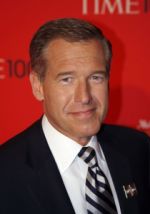I had a chance on Monday to listen to Brian Stelter’s CNN podcast with Bari Weiss, the semi-conservative journalist who left The New York Times over what she perceived as an overabundance of left-wing groupthink.
It was an interesting conversation. I agreed with some of what Weiss had to say and disagreed with some of it. But I was put off by the revisionist history she espoused about the resignation of James Bennet as editorial-page editor of The New York Times. Stelter didn’t push back. I will.
Become a member of Media Nation for just $5 a month!
Weiss offered up as fact the notion that Bennet was forced out of the Times in 2020 solely because he published an op-ed piece by Sen. Tom Cotton, an Arkansas Republican, calling for military force to be used against Black Lives Matter protesters. She described a letter signed by Times staffers saying that Cotton’s op-ed put their lives in danger as “craziness.”
And yes, Bennet’s departure came shortly thereafter. But here are a few facts that neither Weiss nor Stelter brought up:
- After Bennet defended Cotton’s op-ed, it was learned that he hadn’t even bothered to read it before it was published — an inexcusable dereliction of duty.
- Shortly before the Times published Cotton’s op-ed, Cotton called for the government to give “no quarter” to looters. As The Bulwark, a conservative website pointed out, giving no quarter in military terms means to kill indiscriminately — a war crime. Cotton, a veteran, knows that. Unfortunately, neither Bennet nor any other Times editor asked Cotton to address that in his op-ed.
- In late 2019, Times columnist Bret Stephens suggested that Ashkenazi Jews might be genetically more intelligent than other people. Bennet allowed him to clean it up unscathed, although Stephens did have to suffer the indignity of an Editor’s Note being appended to his column. As Politico media critic Jack Shafer wrote at the time, “The Times disavowal and re-edit (tellingly neither co-signed nor acknowledged by Stephens) was too little and too late — if you’re going to edit a piece, the smart move is to edit before it publishes.” That, ahem, would be Bennet’s job. Wonder if he read that one before it was published?
- Sarah Palin has sued the Times for libel over a 2017 editorial in which Bennet personally added language suggesting that a map published by Palin’s PAC, festooned with crosshairs, incited the shooting that severely wounded then-U.S. Rep. Gabrielle Giffords and killed six others. There is no evidence — none — that the mentally ill shooter ever even saw the map. The lawsuit is still pending.
In other words, the mishandled Tom Cotton op-ed was merely the last in a series of banana peels that Bennet stepped on. It’s a wonder he lasted as long as he did.
After leaving the Times, Weiss moved to Substack and started the newsletter Common Sense. She is currently in the process of hiring a team of opinion writers to create what she told Stelter will be “the op-ed page that I want to read.”
Well, if the selective omission of relevant facts is what she wants to read — and wants to publish — then you can count me out.






